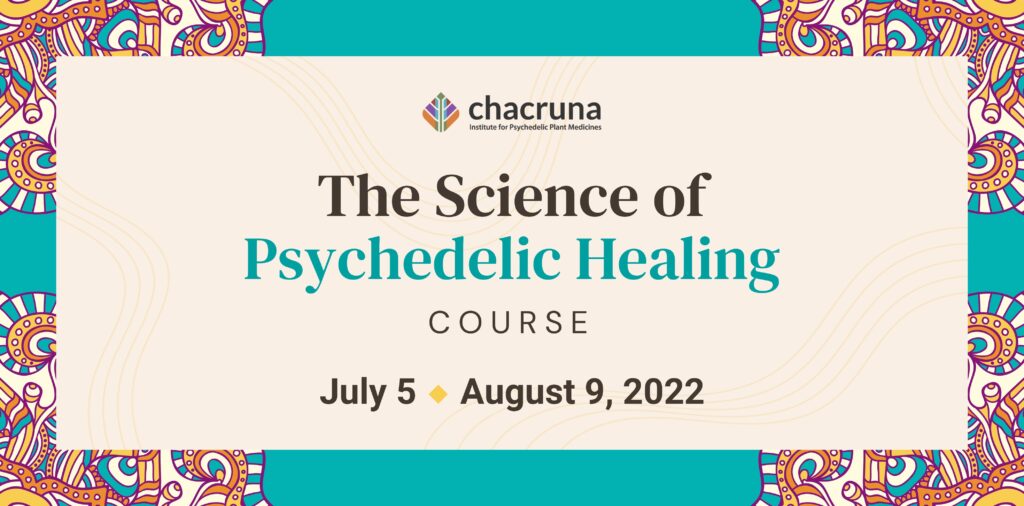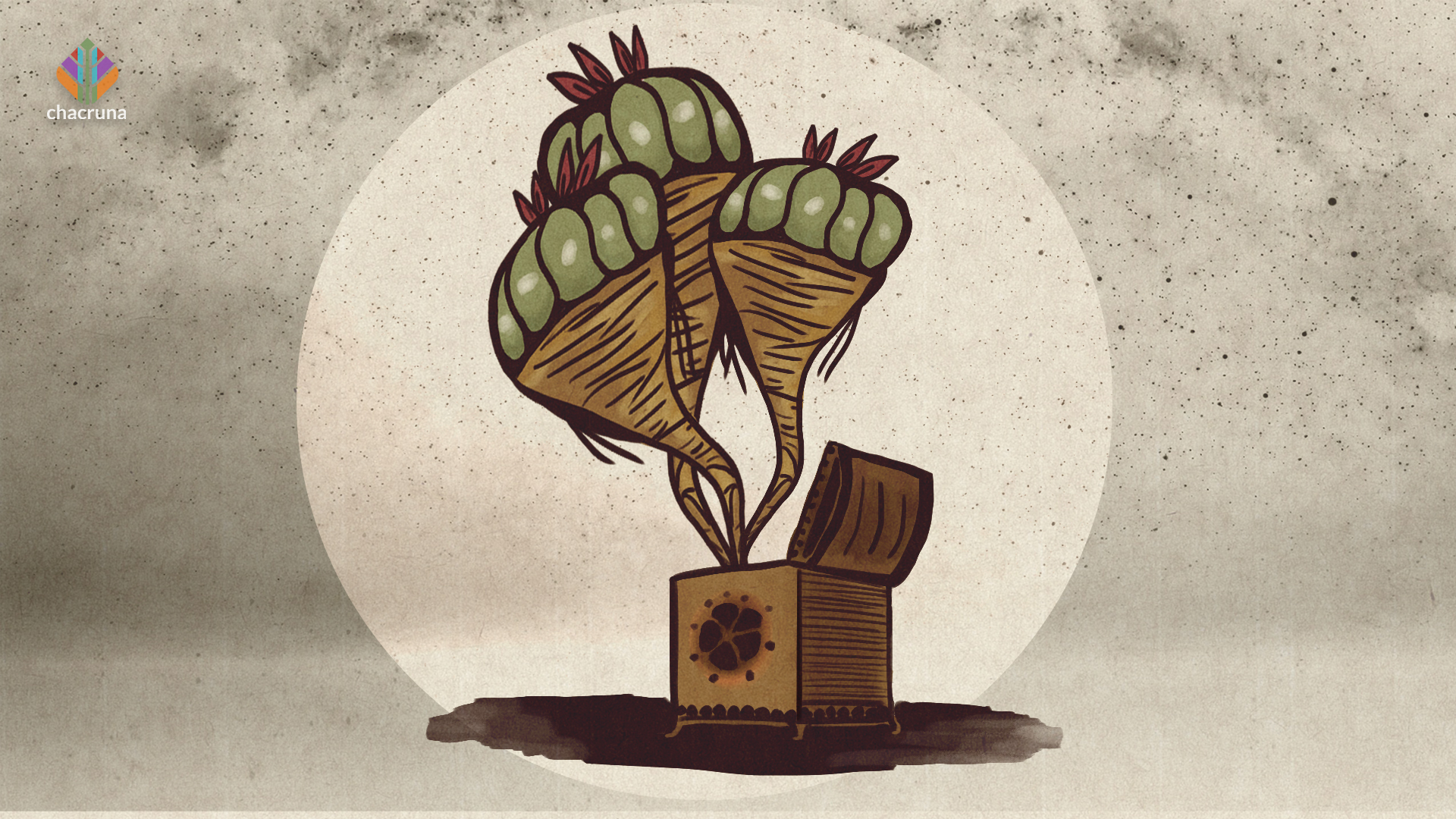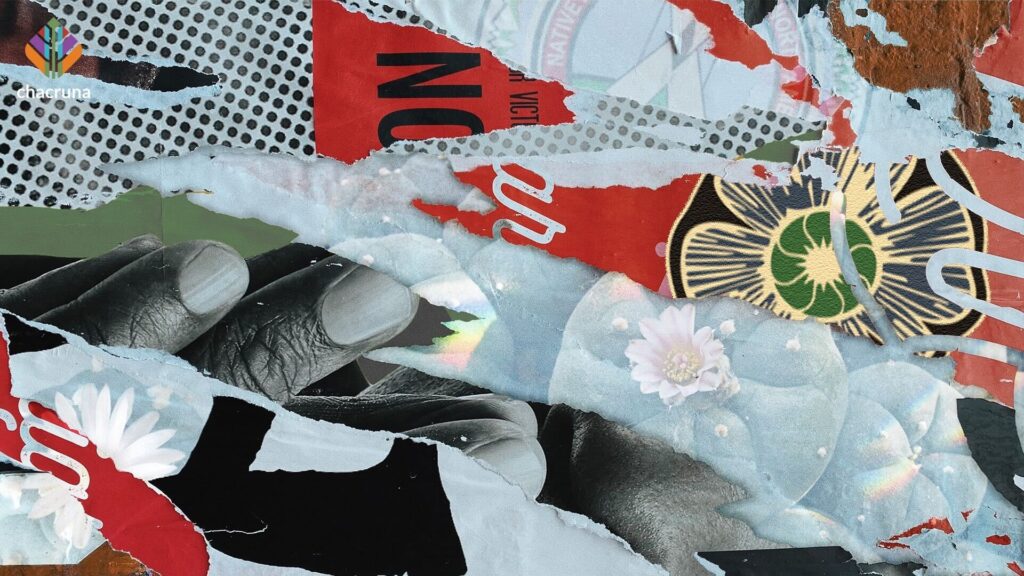- Eight Frequently Asked Questions About Ayahuasca Globalization - February 13, 2024
- Ten Tips for Standing in Solidarity with Indigenous People and Plant Medicines - January 18, 2024
- Genocide by Other Means: Indigenous Peoples and the War on Drugs in Latin America and the Caribbean - December 14, 2023
Peyote, a psychoactive cactus considered sacred by many Native Americans, has recently been caught up in a political movement to decriminalize various psychedelic plants and fungi, primarily through grassroots efforts at the municipal and state levels in the United States. At the epicenter of this movement is “Decriminalize Nature,” an organization whose mission is to “improve human health and well-being by decriminalizing and expanding access to entheogenic plants and fungi through political and community organizing, education, and advocacy.” The emergence of groups like Decriminalize Nature over the past several years is undoubtedly linked to increasing scientific data supporting the use of certain psychedelic substances in the treatment of mental health conditions, as well as a general growth in interest in these plants and their uses for healing and spiritual growth. When these general developments are paired with the realities of a draconian drug war that seeks to punish and control, rather than support and assist individuals and communities in need, steps to decriminalize these substances and de-escalate the War on Drugs appear quite rational and important. The history and present sociocultural context of the peyote cactus within the United States, however, sets it apart from other, similar substances.
Because of this history and continued cultural and religious significance, it is appalling that present-day peoples with active religious traditions involving the sacramental use of peyote were not consulted on efforts to have the cactus decriminalized.

Join Chacruna’s course The Science of Psychedelic Healing
Decriminalization measures around the country are focused on a variety of plants and fungi, including psilocybe mushrooms, mescaline-containing cacti, and tryptamine-containing plants, among others, but only peyote has a clear history of cultural use in the United States, and it continues to be a central and sacred cactus to over 250,000 Native Americans living in the United States today. Because of this history and continued cultural and religious significance, it is appalling that present-day peoples with active religious traditions involving the sacramental use of peyote were not consulted on efforts to have the cactus decriminalized. It seems obvious that those with a current religious tradition that is legally protected would have a stake in any changes to the legal or regulatory status of peyote. However, based on a post made May 16, 2022, from Decriminalize Nature’s Facebook page, it appears that Decriminalize Nature understands Native Americans to be artifacts of the past:
We honor the work of those who created the Native American Church by pursuing broader, more open models of liberation based on the realities of today. As they fought for us, the seventh generation, we fight for those who come after us, seven generations from now.
The Native American Church was not formed so that middle-class Americans in the twenty-first century, or even folks with some indirect and remote Indigenous ancestry today (called, in Mexico, mestizos), could use psychedelic substances without fear of persecution.
Clearly, if one believes that Native Americans are “historical,” rather than contemporary, one would not think to consult Native Americans—who are very much still alive, and who continue to have a clear vested interest in the continuation of their religious and cultural traditions.
In the passage above, there are also troubling assumptions about the origins of the Native American Church, and who they “fought” for, and why. The uses of “we” and “us” are also unclear and appear to blur important details about historical events and cultural identity, details that do not belong to “everyone,” that do not belong to some amorphous “we.” While “we” is a wonderful word that can be used to promote community and solidarity in political movements, it also carries the danger of obscuring the histories and contemporary realities faced by marginalized groups. If one buys into the “we” narrative, it can become difficult to understand how one’s actions ignore the needs and desires of marginalized groups and contributes to their further marginalization. The fact is that Native American histories are marred by terrible instances of genocide and ethnocide, and to make those of “us” who were not descended from such circumstances somehow the same as those who were is problematic and ignores the ongoing trauma that accompanies this history. The Native American Church was not formed so that middle-class Americans in the twenty-first century, or even folks with some indirect and remote Indigenous ancestry today (called, in Mexico, mestizos), could use psychedelic substances without fear of persecution. It’s a nice story, but it isn’t true.
In fact, several groups representing different divisions of the Native American Church are doing everything they can to have their voices heard on the issue of peyote decriminalization, and their message seems to be “let us handle this” and “please stay out.” The National Council of Native American Churches (NCNAC) issued a statement in March of 2020, specifically requesting that efforts to decriminalize psychoactive plants and fungi exclude peyote from their efforts. In their statement, the NCNAC explain that “Broken treaties in this land, the preciousness of native traditions, ecological threats to the medicine itself, and the importance of spiritual respect in its use makes peyote a tenuous plant to include explicitly in any decriminalization effort.” While it is difficult to convey the complexities of these issues in a short statement, the NCNAC offered to be a resource for education on this topic and further requested that Indigenous communities be allowed to lead on this issue, which primarily affects Native populations. Decriminalize Nature has also publicly claimed that their efforts are supported by the Wixárika (Huichol), an Indigenous people of Mexico known for their peyote traditions; however, in December 2020, Wixárika leadership issued a public statement decrying Decriminalize Nature’s misrepresentation of Wixárika support for their decriminalization efforts in the United States.
Also, in May 2021, the Azeé Bee Nahagha of Diné Nation (ABNDN, Inc.), one of the largest Native American Church organizations, passed a resolution requesting that the Navajo Nation Council take a public stand opposing efforts to legalize or decriminalize peyote.
Later, in 2021, the Indigenous Peyote Conservation Initiative (IPCI) followed up with a new letter that reiterated the plea that Indigenous communities be allowed to address legal and ecological issues concerning peyote, and explained that efforts to decriminalize peyote would be disruptive to their own work addressing issues of conservation, as well as maintaining continued access to this scarce resource for future generations of Native Americans. In an open letter to the psychedelic movement, IPCI specifically requested that allies “respect and defer to representative indigenous leadership” and requested that those with an interest in this issue try to “understand that there are processes of change happening inside these native cultures that need time and support to unfold.” Also, in May 2021, the Azeé Bee Nahagha of Diné Nation (ABNDN, Inc.), one of the largest Native American Church organizations, passed a resolution requesting that the Navajo Nation Council take a public stand opposing efforts to legalize or decriminalize peyote. And, finally, the General Assembly of the National Council of American Indians, “the oldest and largest national organization of American Indian and Alaska Native tribal governments,” passed Resolution #SAC-21-038 in October of 2021, establishing their official opposition to either the decriminalization or legalization of peyote and calling on the federal government to block such efforts.
It seems abundantly clear that contemporary leaders of the Native American Church are not interested in the decriminalization and legalization of peyote. Why is it, then, that sectors of the decriminalization movement continue to insist on including peyote in their efforts? What is the harm that is being rectified by decriminalization? What is the desired outcome that will be produced by the decriminalization of peyote? And, who ultimately benefits if decriminalization efforts succeed?
Let’s start with the first question, “what is the harm that is rectified?” In terms of illicit traffic and possession of peyote, incidents of arrest and prosecution are extremely limited. In Texas, the only U.S. state where peyote grows, annual rates of confiscation by law enforcement officials are negligible, with less than two pounds seized in 2020. Peyote is non-addictive, unpleasant tasting, and can cause nausea and vomiting, all factors that limit the appeal and demand for this substance. Peyote is also heavy, bulky, and not terribly potent or profitable in comparison to other illicit substances. These factors, combined with low demand, leave little incentive for its illicit distribution. As a result, most legal issues with peyote involve members of the Native American Church (NAC), and representatives of the NAC have explicitly stated their opposition to decriminalization, as previously mentioned and thoroughly delineated.
So, what is the outcome that is desired by groups seeking to decriminalize peyote? If they were simply looking to include all natural psychedelics in their decriminalization efforts, it seems that removing peyote from their campaign would have been simple enough, once put on notice of the concerns of the NAC. But this did not happen. Why? In sectors of the decriminalization movement (since this movement has been characterized by huge internal conflicts, a few chapters came out against this position) there appears to be an underlying ideology that what is “nature” belongs to everybody. This idea seems very appealing to affluent New Age, White or mestizo psychedelic activists, and indeed, it’s a very nice philosophy in theory, but it’s extremely problematic and simply not accurate; just ask Native Americans. Who owns their ancestral lands? Who owns the herds of buffalo? Who owns the salmon? Who owns the oil and minerals under their reservations? Who owns the bodies of their ancestors? Who owns their art and sacred sites? Who owns the pharmaceutical drugs that have been derived from Native medicines? Who owns the National Parks that former Native lands have been turned into for the benefit of “everyone”? The answers to these questions should be telling enough without diving into the realities of capitalism, resource extraction, and the principles of supply and demand. While the “fruits of nature” can naively be touted as available for everyone, the availability is limited to those who have the means to purchase these “fruits”; a reality that will likely exclude many Native Americans, who continue to face widespread poverty on U.S. reservations.
The process of regulating peyote is an inherently colonial process; however, reversing the prohibition on peyote does not remove problems of colonialism from the equation.

Discover the Indigenous Reciprocity Initiative of the Americas
The process of regulating peyote is an inherently colonial process; however, reversing the prohibition on peyote does not remove problems of colonialism from the equation. As a social justice issue, the major impacted party is the Native American Church. Decriminalization efforts that exclude Native Americans from the process, or that use tokenization to advance their goals against clear denouncements from organizations representing a myriad of Native voices, do not solve the problems of peyote prohibition, but rather act as an oppressive, divisive, and neocolonial force.
Whereas ecological concerns are real and important, the psychedelic movement has no business in trying to impose its views on these matters, but rather, should stand in solidarity with Native requests.
The same can be said about the cultivation of peyote. Whereas ecological concerns are real and important, the psychedelic movement has no business in trying to impose its views on these matters, but rather, should stand in solidarity with Native requests. In this regard, Decriminalize Nature has also misrepresented scientific reports and papers to support their position on the decriminalization of peyote. In the United States, peyote is a Native issue, and Native voices should be allowed to lead on the questions that most impact their lives, communities, prayers, and families. For many Native Americans, peyote is sacred, and they have a right to be worried about its profanation, commercialization, and banalization. Decriminalization should be about social justice, not about building egos or tallying political victories, and in this case, social justice means empowering those most impacted by peyote prohibition to tackle this issue in a culturally appropriate manner.
While decriminalization is not legalization, it introduces new and unpredictable factors that could have significant ecological consequences for peyote, as well as potentially disrupting access to this sacred resource by communities and families who have prayed together with this medicine for generations. The reality is that there is no clear benefit to Native communities if peyote is decriminalized; rather, decriminalization can be seen as a Pandora’s box that, once opened, cannot be closed again. It should be left to the Native American Church to decide if, and when, and under what circumstances this box should be opened.
Art by Mariom Luna.
Take a minute to browse our stock:
Did you enjoy reading this article?
Please support Chacruna's work by donating to us. We are an independent organization and we offer free education and advocacy for psychedelic plant medicines. We are a team of dedicated volunteers!
Can you help Chacruna advance cultural understanding around these substances?

















